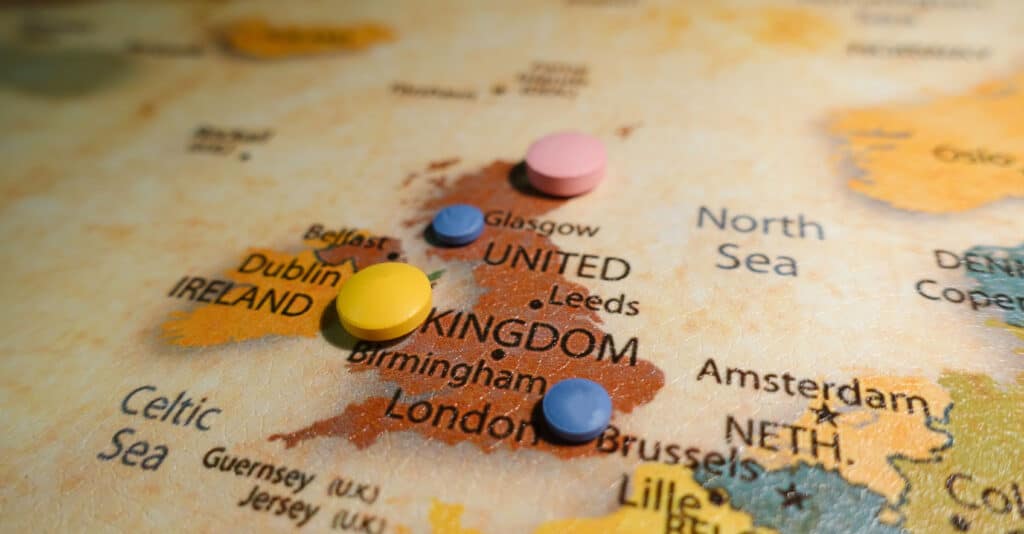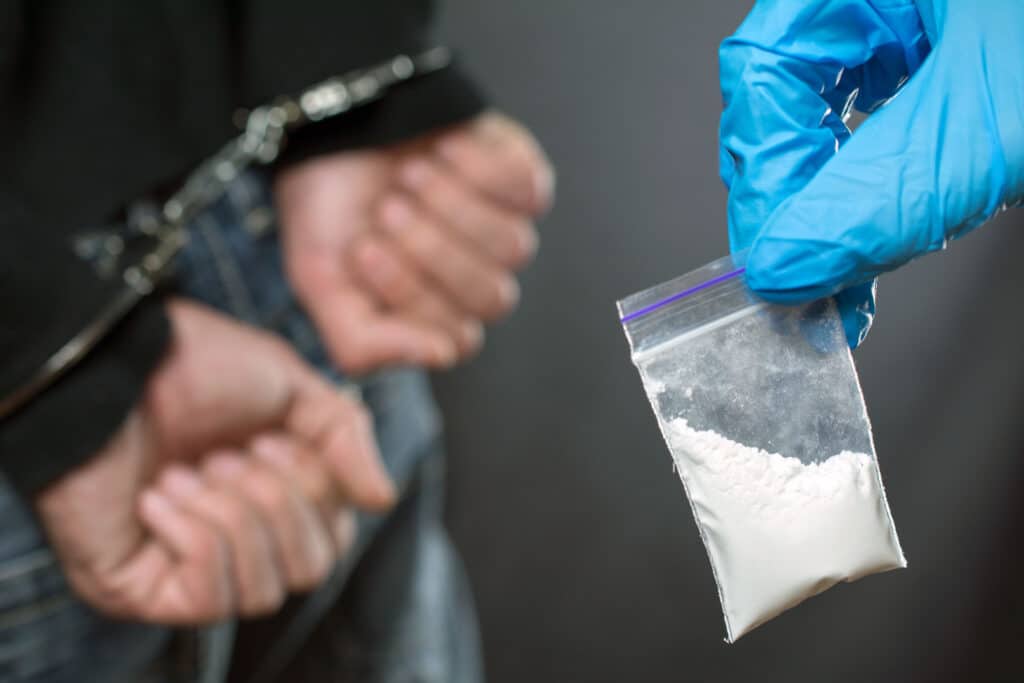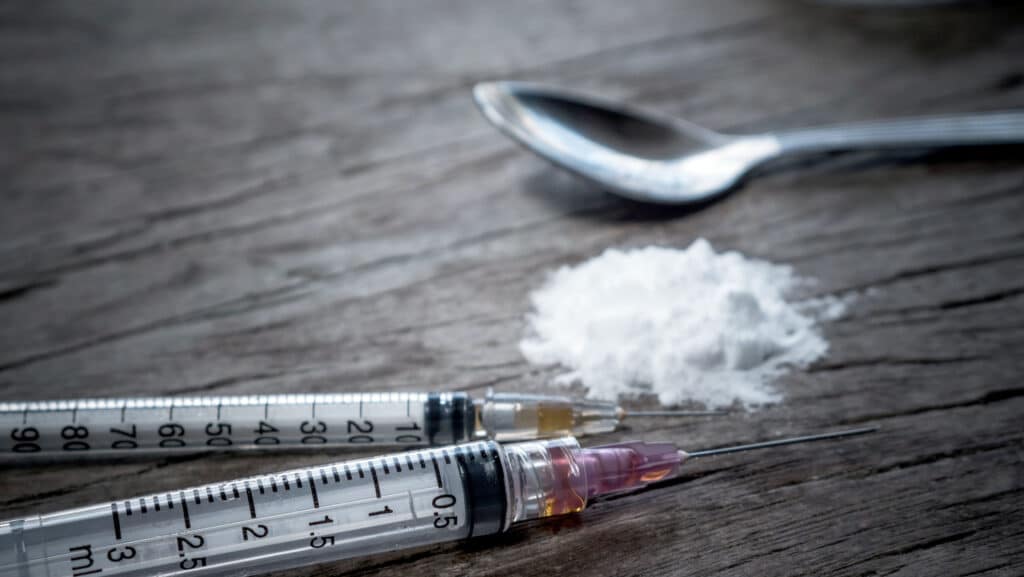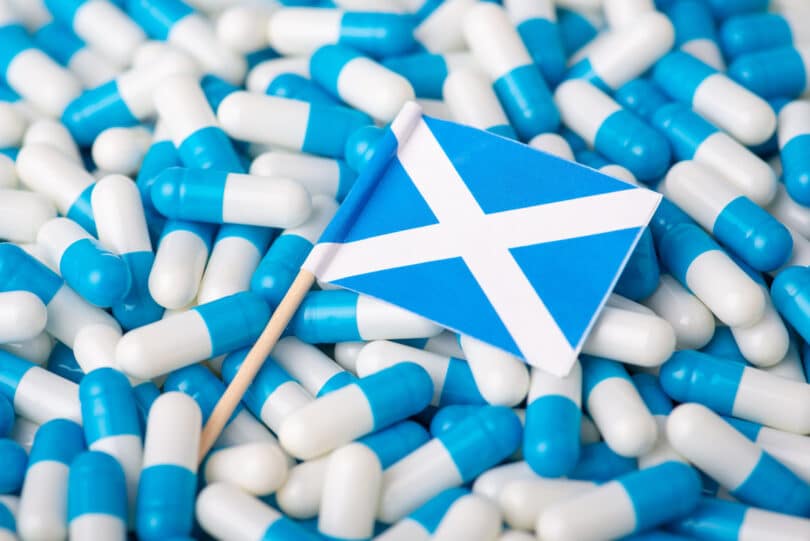The government of Scotland just released proposals for drug policy reform, and is now putting pressure on the UK government to abandon the non-working war on drugs. What does Scotland’s new report say, and how does the country want to change drug policy?
Scotland drug policy reform proposal
The policy reform paper released on Friday July 7th, by the government of Scotland, is aptly titled Drug Law Reform Proposals, with a subheading: ‘Call for decriminalisation for personal supply.’ It doesn’t waste any time getting into things. It opens with this paragraph: “Decriminalisation of all drugs for personal supply is one of a number of polices which the Scottish Government is calling on the UK Government to implement in a new paper on drug law reform.”
It points out that treatment is a better option to criminalizing use, and that decriminalization could help with the legal stigma created by drug possession charges; particularly for gaining employment. The paper makes three main proposals, which go as follows:
- “Decriminalisation of all drugs for personal supply progressed as part of a wider review of drug laws.
- Immediate legislative changes to allow us to fully and properly implement harm reduction measures such as supervised drug consumption facilities (rather than the current proposal being explored which is constrained by having to work within existing legislation), drug checking and increased access to the life saving drug naloxone.
- A roadmap for further exploration of drug law reform, focused on evidence and the reduction of harm, including an update of the drug classification system to be based on harms caused.”

As Scotland is part of the United Kingdom, it can only do so much on its own, and needs the help of the UK. The report was published by the Scottish government, and is meant to apply pressure to the UK government, in the hopes of an entire UK-wide drug policy overhaul. The proposed reforms don’t mention a specific drug or drug class, though this could change in the future. For now, the current understanding is for an overall decriminalization, which includes anything from cannabis to psychedelics to heroin, and so on.
According to Scotland’s First Minister Humza Yousaf, as per Twitter post, “The UK Government could make changes themselves or devolve the appropriate powers to the Scottish Government, allowing us to make the necessary changes at a time when drug deaths continue to be far too high.”
Statement by Elena Whitham
Scotland’s Minister for Drugs and Alcohol Policy, Elena Whitham explained, “We want to create a society where problematic drug use is treated as a health, not a criminal matter, reducing stigma and discrimination and enabling the person to recover and contribute positively to society. While we know these proposals will spark debate, they are in line with our public health approach and would further our national mission to improve and save lives.”
She continued, “We are working hard within the powers we have to reduce drug deaths, and while there is more we need to do, our approach is simply at odds with the Westminster legislation we must operate within.”
She went on that the Scottish government could implement such policies “through the devolution of further, specific powers to Holyrood including the Misuse of Drugs Act 1971 – or through independence. An immediate way for these policies to be enacted would be for the UK Government to use its existing powers to change its drug laws.”
She finished by saying, “Scotland needs a caring, compassionate and human rights informed drugs policy, with public health and the reduction of harm as its underlying principles, and we are ready to work with the UK Government to put into practice this progressive policy.”

Will the UK do this?
Scotland is one part of the UK, along with England, Wales, and Northern Ireland. Scotland had a population count of about 5.4 million in 2019. The UK as a whole has over 67 million total, and the majority live in England. With small numbers, one issue for a country like Scotland, is getting the federal body to care. Imagine if Wyoming or Rhode Island really wanted a policy change, but the rest of the country was quieter on the matter. The federal government likely wouldn’t budge.
Beyond the idea that Scotland might not have a population pull to get these actions through, the UK government is currently on the other side of the issue; to the point of literally announcing plans to do the opposite of what Scotland wants. The UK’s Prime Minister as of 2022, Rishi Sunak, is the leader of the Conservative Party in the country.
In the beginning of July, Sunak made a statement about upcoming drug policy. In fact, he made a couple statements before Scotland released anything, and nothing that implicates any kind of reform. On July 3rd he put up a two sentence Tweet: “Crackdown on drugs. We’ve strengthened police powers to stamp out illegal drugs in our communities by widening drugs testing on criminals.”
At about the same time, he put up another two-sentence post: “Cracking down on illegal vaping. We’re going after rogue companies and online crooks who hand out vapes to children.” This statement is interesting on two counts. One, it makes it sound like vapes are taking people out left and right; and two, that shady dealers are standing in corners waiting to pluck off every young child. Neither of these is true. It’s a strange, yet familiar sentiment, for something that not only isn’t linked to the same death toll or sicknesses as smoking; but helps people not smoke.
What makes it more interesting, is that the UK recently instituted policy to use vapes as a smoking alternative. The plan is that only the government can distribute them, making the government the sole supplier in the legal market. It sounds more like an attempt to curb the illicit vape market, than an attempt to set up policy to help people. The law goes hard against any illicit vape sellers.
And given Sunak approved this policy to give them out, he can’t be that concerned of the dangers. Scotland made the request for drug reform because of thousands of deaths. Vapes have no direct deaths; something the UK released in a report last year. All deaths (the few that exist) are associated with additives only. Yet Sunak, it seems, prefers to go after non-taxpaying markets since they can bring in a lot of money, rather than worry about an actual rising death toll in Scotland.
Scotland opioid issue
With these things known, it makes a person wonder if Scotland thought anything would change by asking nicely for the UK to reform its drug policy. Maybe not, maybe this is just an indication of the frustration of the country at its rising death toll; a similar problem to what’s going on in the US. Opioids.

Two years ago in July of 2021, Scotland reported via the BBC that 1,339 people died in 2020 from drug overdoses. This made for the seventh year in a row of elevated deaths; up from 1,264 in 2019. This also makes Scotland the highest death-rate-from-drugs country in Europe. Scotland has a death overdose rate of more than 2.5X that of England or Wales; which is a good indication of Scotland’s indignation on the subject. Scotland already had a particular issue with heroin for many years. A rise in synthetic opioids doesn’t help.
A few of the bullet points attached to the drug death report for 2020; 93% of the deaths involved more than one drug. 1,192 of the overdoses involved opioids; that’s 89% of all overdose deaths in the country. 974 deaths involved benzodiazepines, that’s over 72%. 459 deaths included cocaine, making for 34%.
What else was there a whole lot of? Gabapentin and pregabalin. At least one of these was found in 502 cases, which is 37% of the deaths. There has also been a large uptick in deaths involving the benzodiazepine-relative, etizolam. Incidences with this drug went from 58 five years before, to 879 in 2020.
2021 numbers did go down a bit. In 2021 there were 1,295 suspected overdose deaths, a fall of 8% (116 people) from the previous year. However, this article puts the comparison at 1,411, which was also offered as a suspected overdose death number for 2020. If going by the 1,339 number, which is in the National Records of Scotland, then it was a lesser drop of only 44 from 2020 to 2021.
Conclusion
Scotland is getting quite concerned about its drug issue, and wants to reform drug policy to find better answers. But it must deal with being a member of the UK, which includes UK federal policy. Scotland might be at its wits end dealing with opioids and other pharmaceuticals in the country; but the current UK government wants to increase criminalization, and not end it. And so Scotland will have to wait, or try something else for now.
Hello drug enthusiasts! Cool that you’re here with us at Cannadelics.com; where we’re focused on top notch independent reporting for cannabis, hallucinogens, and the drug world at large. Check us out often for updates. And head over to the Cannadelics Weekly Newsletter, for all the best news and product promos, in the same place.


Unfortunately the fears about drugs’ deaths and dangers are used to prevent some of the public from understanding why making all drugs (medicines) legal could be positive. It’s back to the ‘Reefer Madness’ distorted views on cannabis (albeit archaic) that help to give those who have no experience the certainty that all drugs are bad and should be kept illegal.
If we could only classify sugar, caffeine, alcohol and tobacco as drugs then perhaps it would be widely understood that all substances affect us and can be harmful in the wrong doses and when used by people who are sensitive, immature and/or irresponsible.
By regulating all drugs and making them legal this could actually stop many from using. Does Holland have a huge problem with drug users? No. The majority of folk who use drugs in Holland are tourists. And by regulating drugs the taxation collected would go back into services, reduce the need for police resources to be used on illegal drug activity, organised crime groups would no longer be financed by this AND lives may be saved.
Currently the amount of dangerous, unknown and toxic, substances being laced with products and sold on the black market is killing people. Two young men, both aged 18, died on Saturday night after attending an even in Glasgow. Police now state the deaths were drugs related. My bet is that they consumed substances that were overdosed or of a chemical nature to which they had fatal reactions to.
Prison deaths have doubled throughout the UK because of synthetic cannabis use in jail. Is it just a case of “let the criminals, the poor and the sick die as we’re already over-populated”???